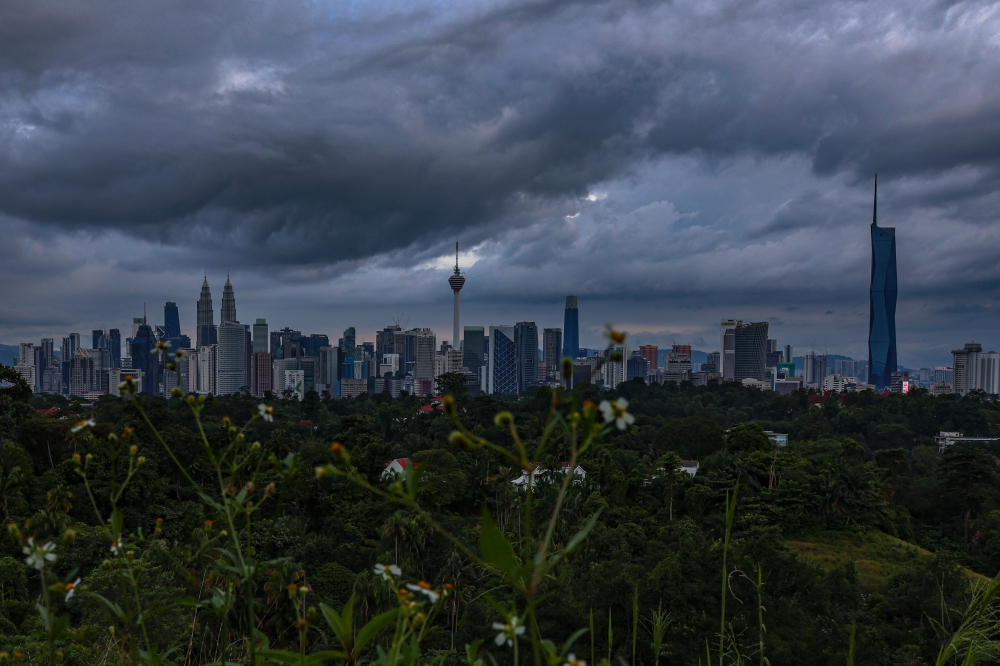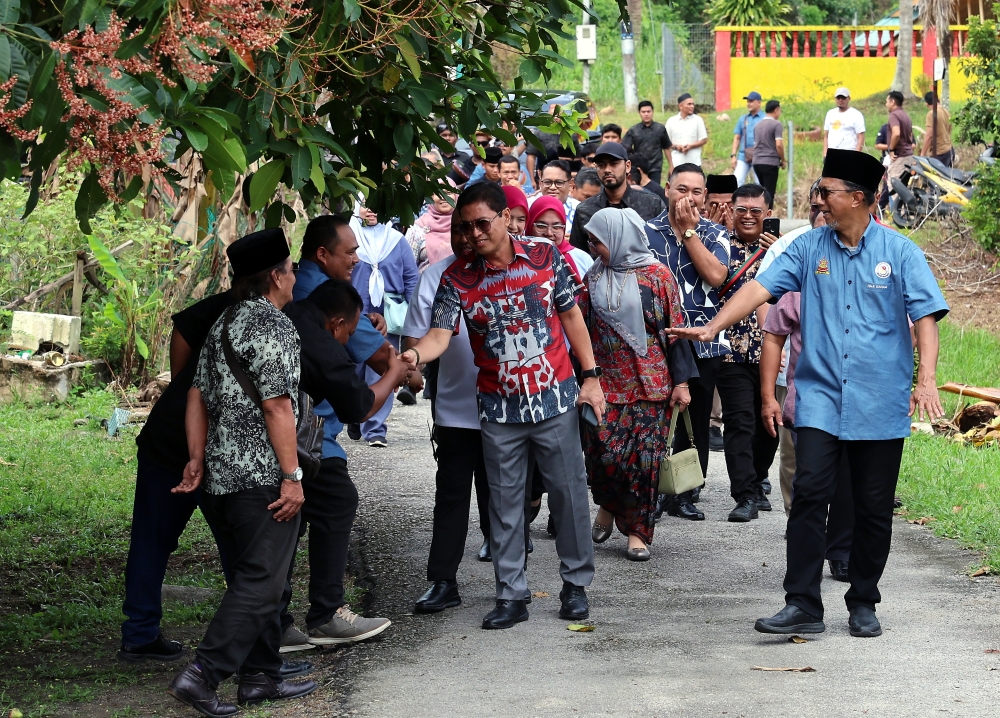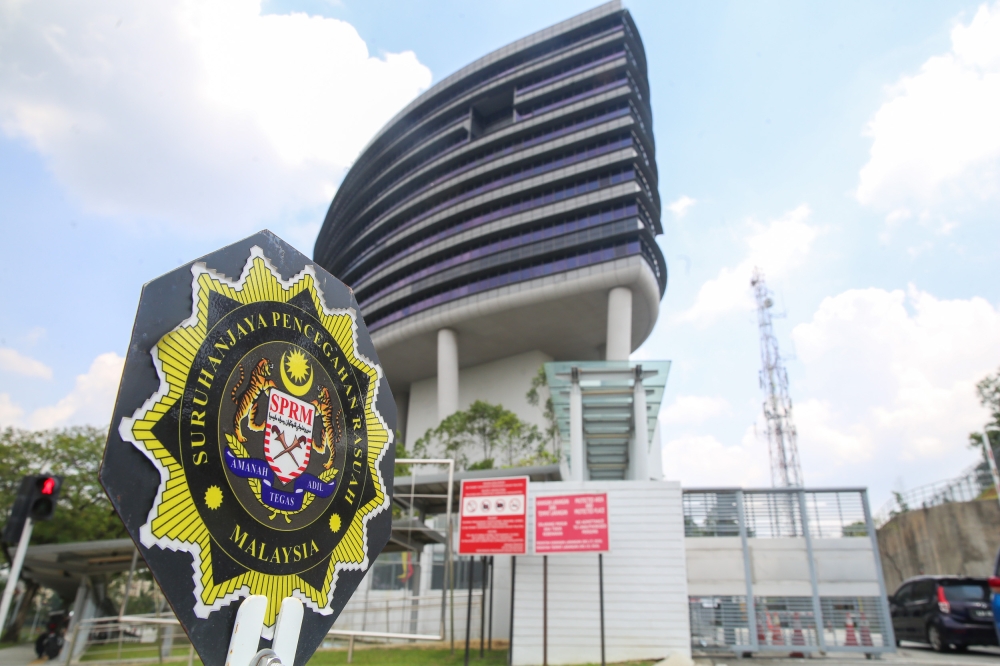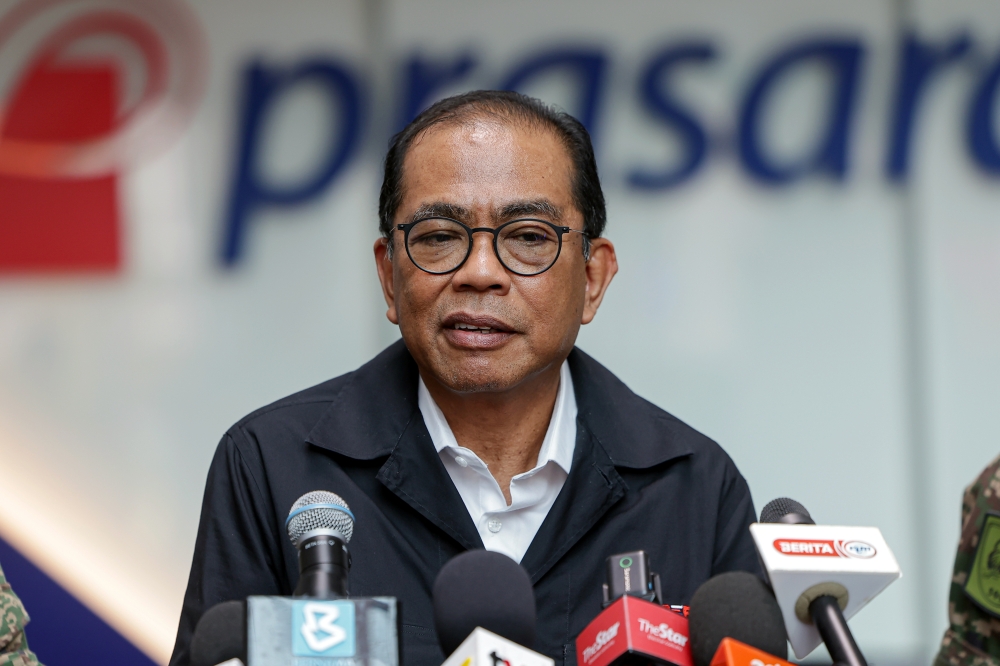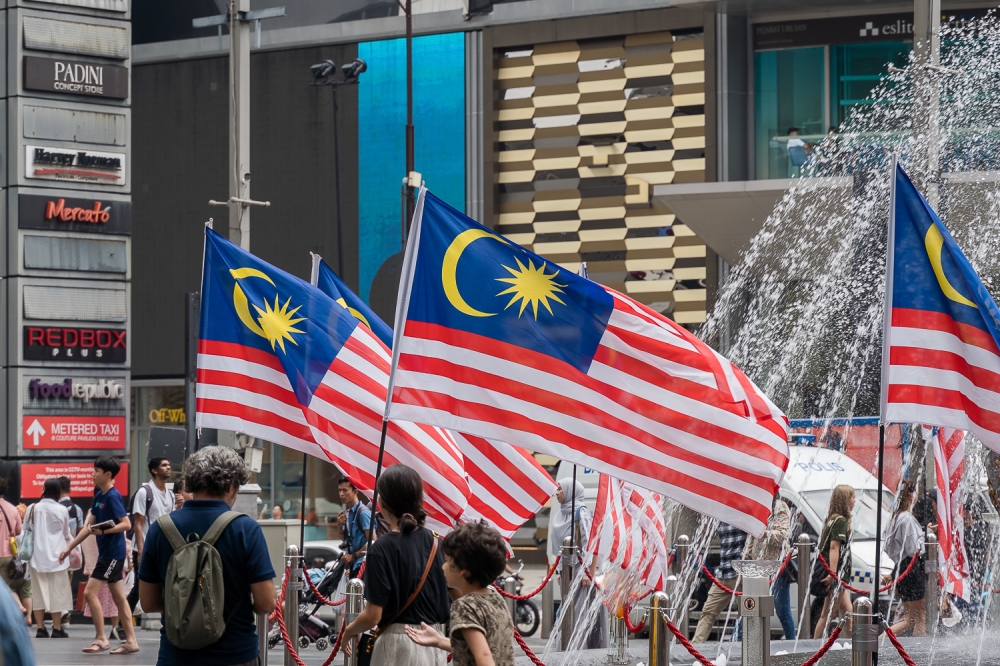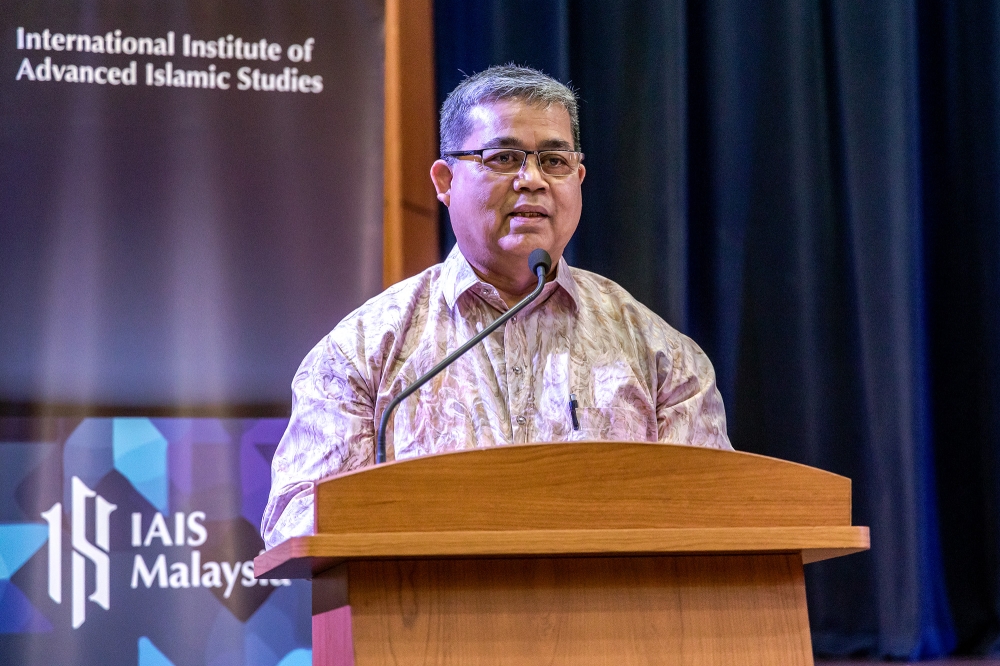KUALA LUMPUR, Nov 5 — Are politicians the reason why Malaysians are divided and unable to form a “Bangsa Malaysia” or Malaysian nation? Or have Malaysians given rise to divisive politicians? Or is there a bigger, structural issue at play?
These were the questions that a panel comprising an activist and three scholars grappled with yesterday during Persatuan Promosi Harmoni Malaysia’s (Harmony Malaysia) sixth annual conference titled “Bangsa Malaysia: Myth or Reality”, which was organised in collaboration with and hosted at the International Institute of Advanced Islamic Studies (IAIS) Malaysia.
During the conference’s question-and-answer session, lawyer Siti Zabedah Kasim, who was part of the audience, suggested that politicians are to blame for dividing the nation, and that a united Malaysia can become a reality if Malaysians “choose the right leadership” instead of voting in the same individuals and parties that cause disunity in Parliament.
Political scientist Wong Chin Huat, who is a professor at Sunway University and one of the speakers at the event, then responded by saying that holding politicians responsible will not solve this problem even if some are to blame for the current state of affairs.
“We can all argue that we want the right politicians, but who are we? Does everyone have the same idea who we are, of what we want out of politics?” he asked, saying that the challenge that needs to be addressed is a structural issue and that giving the right incentives should stop politicians from sowing division.
“How do we have a chance of different types of politicians, but in a more constructive way? I don’t believe so much in people. I’ve seen good people doing wrong things. I have seen bad people doing good things when they are given the right incentives.
“As a political scientist, I would say, it is easier to change the system that will produce better-behaving politicians than counting on politicians to be nice. I would rather be more realistic and say fix the system.”
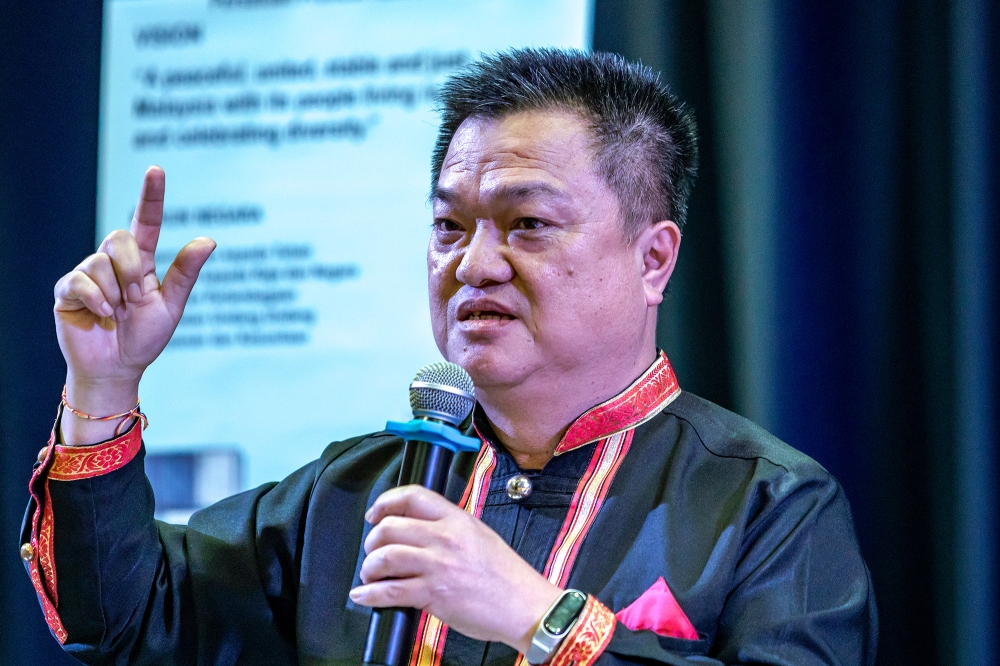
The carrot approach
Earlier, when speaking on the panel, Wong said many Malaysians often say that the problem lies with politicians, instead of them, but he suggested the larger problem is how Malaysians deal with or view politics.
Noting that any form of politicking in Malaysia tends to follow racial lines and only serves to magnify them, Wong also acknowledged that Malaysians are united about things such as food and sport, but that they also tend to view politics as a source of division.
“In many ways, it is true, because small issues that could simply be overlooked tend to be amplified so that politicians can mobilise,” he said.
Wong then examined why Malaysia’s politics is so “toxic”, suggesting that this was because politicians and political parties wanted to portray themselves as different from their rivals to garner voter support.
He said the three ways which politicians use to appear “different” are identity, patronage, and policy.
He added that it is human nature for politicians to focus on “identity” differences as it is more natural to feel secure in the company of people who are similar and threatened by those who are not.
“So what that means is, if you do not give the right incentive to politicians, how would they project that differentiation from others? They would definitely talk about ethnicity, religion, language, regional, gender, lifestyle and so on. Because they don’t have to do extra work,” he said, adding that politicians would resort to the “default” of saying that the world is divided into “our people and others, us and them” and that the “others” are not trustworthy.
“So unless we have a foreign and external threat that forces us to be united, unity can end up just becoming mobilisation against some ‘other’,” he said.
Wong advocated pushing politicians to compete to offer the best policies to Malaysians, saying: “We have to think that division based on identity is a default, so we have to consciously create new incentives for politicians to move away. Otherwise, they will just fall back to this. Don’t blame them. They are not evil. It’s just natural.”
As for “patronage” politics, where politicians compete by giving government-linked companies (GLC) positions, jobs or contracts to friends, Wong said this results in corruption and inefficiency, but may reduce identity politics.
“Do you notice whichever parties they are, when they come to government, they become moderate? When they are in Opposition, they tend to be more radical.
“It’s not that they are hypocritical. It’s just they respond to the incentives in the system. Because when you are in government, you can afford to be not so heroic, you can be moderate. Moderate in our society is not popular, because we have deep divisions and distrust,” he said.
Wong listed ways in which Malaysia can reduce the toxicity of its politics, including ensuring equal ground before then removing patronage politics.
“First, we have to give equal constituency allocation funds to all MPs and state assemblymen regardless of their party,” he said.
Secondly, Wong said Malaysia not only needs to have political financing laws to control how political parties spend money but should also introduce a system where the government provides money to parties based on the number of votes garnered, instead of letting these parties “starve” financially.
“Because if you starve politicians, the ones who can survive starving are normally the hardliners, then you are not going to get any moderate politicians,” he said, adding that there should be parliamentary reforms to give both government backbenchers and opposition MPs more roles to play.
“Next, we need to have recognition of shadow ministers, shadow Cabinet, pay them money. Why? You will say not all of them are up to par, doesn’t matter, not all ministers are up to par either. You still need them, you pay them so that when we think about these ministers, we have a comparison. When you pay them, you pay attention to what the Opposition does, you force them to be more professional.”
He said Malaysia should also combine its existing first-past-the-post system for elections with a party list electoral system for a mixed member majoritarian system, noting that this would have several benefits, including giving non-communal parties and parties that are specific to age, class, gender or issues such as the environment a chance at being elected to Parliament and change the topics of debate there.
If the new electoral system is introduced, Wong said a gender quota and a minority quota can also be introduced to make Parliament more diverse, which will encourage political parties to broaden their appeal.
“If we want to move away from ethno-religious politics, we need institutional reforms so that politicians face healthy incentives,” Wong concluded.

How can politicians help us to achieve ‘Bangsa Malaysia’?
Social science scholar Sharifah Munirah Syed Hussain Alatas, a retired assistant professor at Universiti Kebangsaan Malaysia, said change must come from the top as the decline in relations among Malaysians started with leadership.
Earlier, in her speech, Munirah, who was also on the panel, said the ongoing debate and discourse in Malaysia on what amounts to “Bangsa Malaysia” is going nowhere.
“It is actually really a discourse on the nation, on ethnicity, and on identity — these are the three main thrusts of the discourse. What is ‘nation’? ‘Nation’ comprises these concepts, the concept of territory, the concept of population, language, culture, symbols and institutions. Malaysia is all of this, but most are contested, leaving us in an identity vacuum.
“Because of this, Bangsa Malaysia remains only an aspiration. We are still unsure of the kind of nation that we are, but we have visions of what it should be based on,” she said, adding that it should centre on the country’s more tolerant past as Malaysians have been endlessly arguing about race, ethnicity and religion identity and forgotten about “patriotism”.
Munirah said the discourse on Bangsa Malaysia is dominated by “regressive dialogue of extremism, supremacist thinking and divisive narratives” because those in politics have an “irrational phobia of diversity”.
She said Malaysia could get closer to realising Bangsa Malaysia if there is “political will” to reform politics, such as in relation to the parliamentary process, the efficacy of parliamentary select committees, the Opposition’s strength, and shadow cabinets.
She said reforming politics in Malaysia has always been unnecessarily linked to a debate about ethnicity and religious identity when it is not exclusively about such matters, pointing out that the debate on “Bangsa Malaysia” is typically a predominantly Malaya-centric discourse. Peninsular Malaysia was formerly known as Malaya.
“Any discussion on Bangsa Malaysia must be inclusive of all our regions — Malaya, Sabah and Sarawak; views from indigenous communities must be taken seriously. How can we speak of a Bangsa Malaysia when we marginalise our indigenous communities’ views?” she asked.
Munirah then suggested a useful discourse about Bangsa Malaysia would require the country’s leaders to keep repeating “Malaysia’s pluralism — that the Chinese and the Indian communities for instance contributed to Malaysia’s development, they are not guests, that all the Bumiputera, the indigenous populations are part of this pluralism”.
“Reject all forms of ethno-centrism, Ketuanan or Malay supremacism, extremism, and corruption in everyday life. Have frank discussions, stop worrying about the disappearance of Malay rights or the position of Islam in the country. Every little comment is always about the Malays are confused or this will confuse Muslims. We are better than being confused people.
“Provisions of our Constitution remain intact, nobody is challenging that, non-Bumiputera in this country have no intention of changing that. That is not what the narrative and discourse is about. Set an example of our moral identity,” she said.
She said Malaysia’s moral identity is a secular state with an official religion and noted that nobody disputes that the official religion is Islam, yet there are endless divisive discussions to imply otherwise led by politicians.
Munirah said leaders must remember that “honest and open” discussions will never threaten Islam or the special position of the Malays — which she described as a narrative put forward by leaders — adding that such discussions will instead generate a respectful environment for a mature dialogue which would lead to more compromise and compassion among Malaysians.
“Malaysians need this because this is what Bangsa Malaysia aspires to be,” she said.
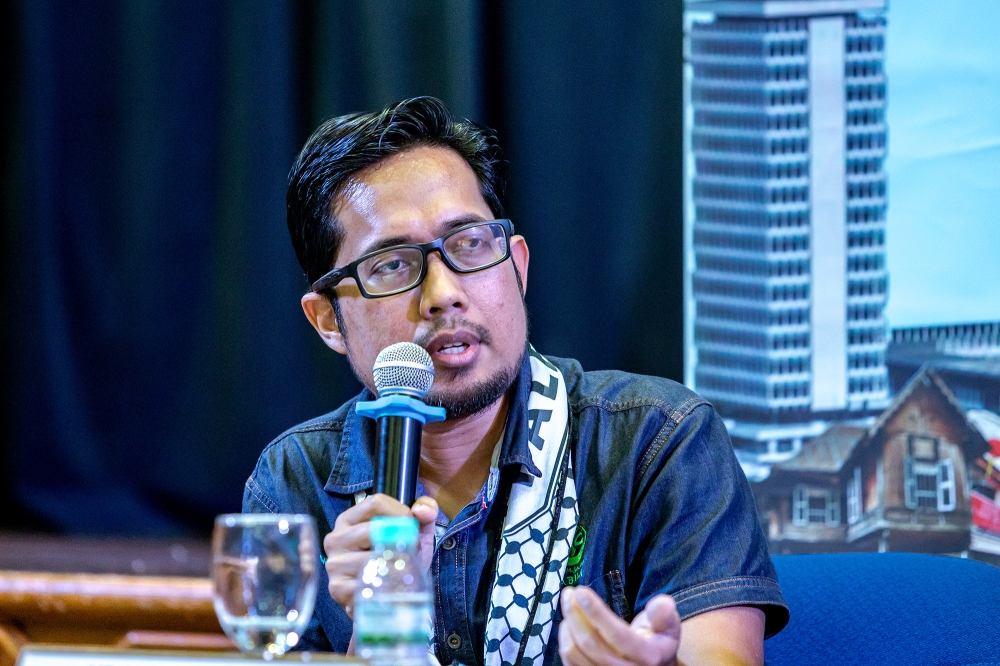
Setting own direction and empowering the youth
Angkatan Belia Islam Malaysia president Muhammad Faisal Abdul Aziz, who was also on the panel of four speakers, said it would be “unfair just to put the blame on the politicians” when it comes to national unity and said Malaysians need to do their part too.
Faisal said Malaysians can make “Bangsa Malaysia” a reality if they stand up and set their own direction.
Faisal later said not everything is decided by politicians and noted that Malaysians went beyond politics by helping each other out during the Covid-19 pandemic as shown through the “#kitajagakita” slogan, and that Malaysians need to have multiple competing identities — including “Bangsa Malaysia” — in order to reduce the focus on race-based identity politics.
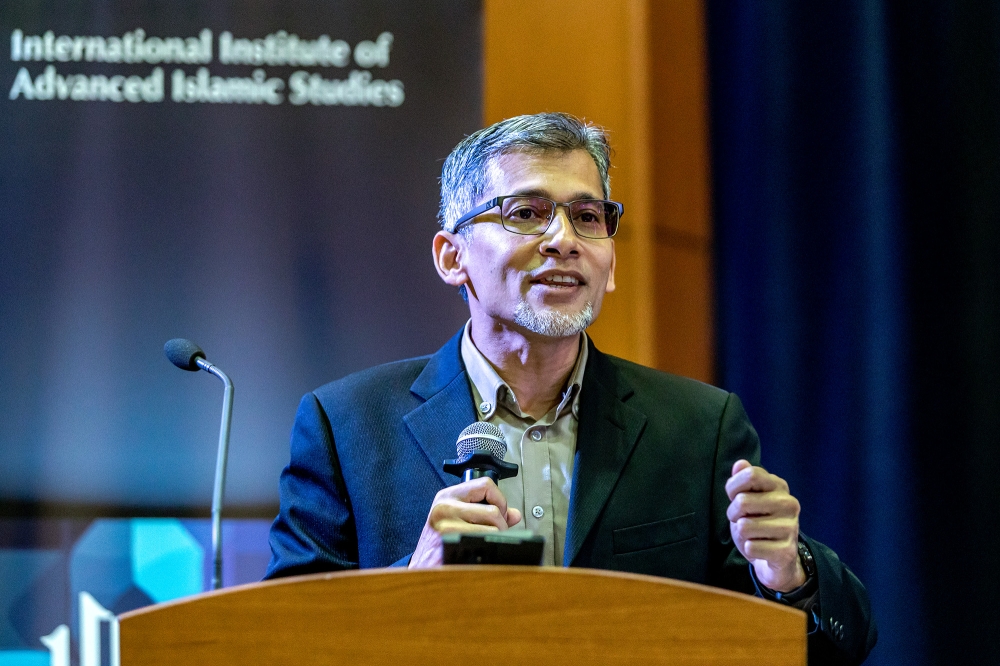
Syed Muhammad Khairudin Aljunied, a professor at Universiti Malaya and an adjunct fellow at IAIS Malaysia, suggested that Malaysians do not actually need the ideology of “Bangsa Malaysia” but should instead use it as a building block in the national narrative.
He suggested that what is needed instead is cosmopolitanism, and that this could be achieved by empowering the youth to understand that the most basic identity is as a human being who is morally responsible for other human beings.
“And if we can be cosmopolitan enough to accept that everyone is different, everyone deserves to be a Malaysian in their own way, but at the same time, work for the betterment of Malaysia, then they can give birth to a new way of thinking where societies, races and religions can then come together,” he said.
“It becomes a problem when we want to emphasise differences and not similarities. It becomes a problem when we don’t want to accept the fact that our very own humanity is very much contingent on the fact that we must accept that we must be cosmopolitan enough to open ourselves to other ideas, other ideologies, other ways of thinking, but at the same time be rooted in what we call now as Malaysian.”
When commenting on the idea that Malaysians are responsible for the type of leaders that they vote into power, Khairudin said politicians do not fall from the sky but are instead shaped by their families and society.
“Politicians are the product of our society. They are the product of our attitudes, our worldview, our culture, our customs, our education,” he said.
As a result, he said families must teach children to respect all ethnic groups and others within the community and this must start from the conversations that take place at the dinner table.
Saying that the word “bangsa” was introduced by the British to mean “race” and later reconceptualised to mean “nation”, he said there was a need to rethink whether the word “bangsa” should still be used to envision Malaysia, commenting on “Bangsa Malaysia” by saying: “I think it’s both a myth and cannot be a reality, because the concept is problematic to begin with”.
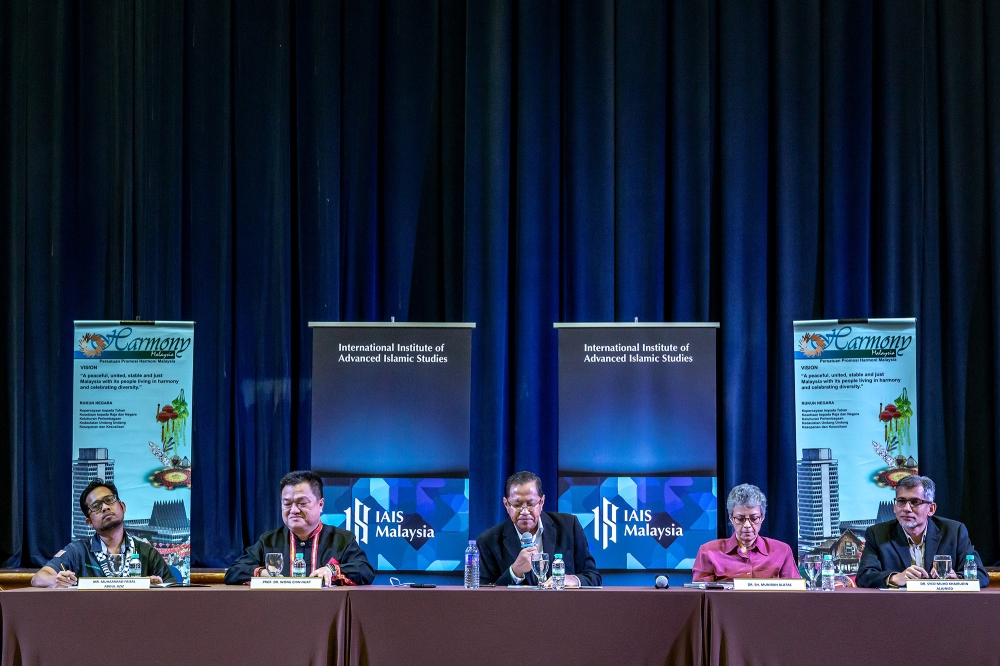
Before the panel’s discussion, National Unity Minister Datuk Seri Aaron Ago Dagang in his keynote address said “toxic racial politics” played up by politicians — especially when nearing or during elections — is a key challenge in making “Bangsa Malaysia” a reality, and said “political will” was required to resolve this.
At the end of the vigorous discussion and question-and-answer session involving audience members, Harmony Malaysia vice-president Amir Farid Isahak asked those present to vote on whether they think “Bangsa Malaysia” is a myth, reality, or aspiration.
One person raised their hand to say “Bangsa Malaysia” is a myth, about seven saw it as a reality, while a rough estimate of nearly 20 or more hands shot up to indicate that “Bangsa Malaysia” is an aspiration and a work in progress.










